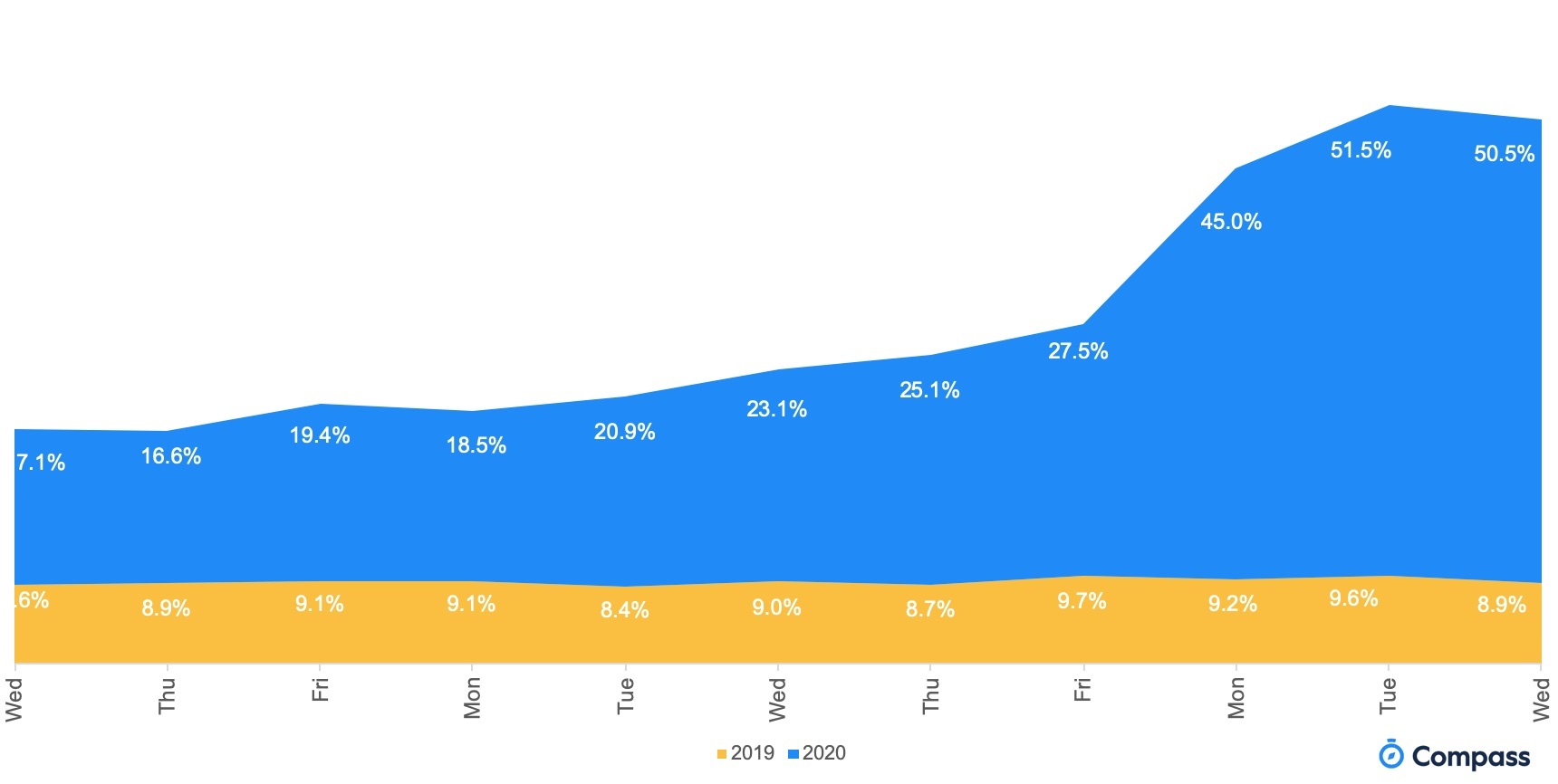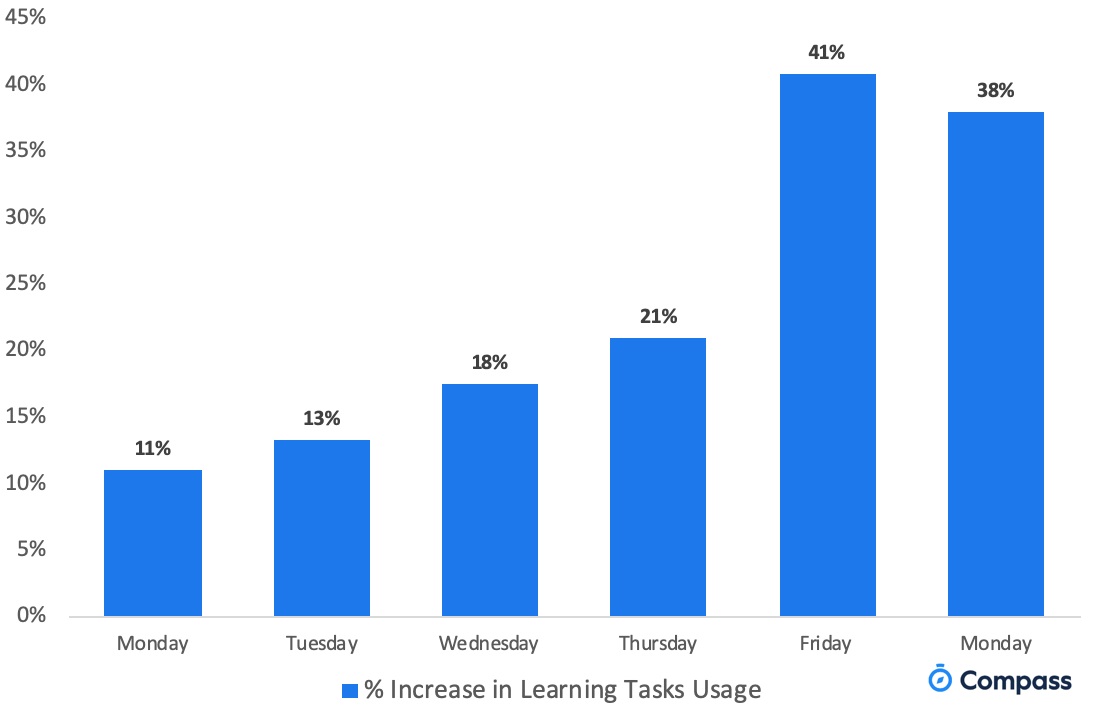The parents of Australian children have ignored the pleadings of Prime Minister Scott Morrison and Chief Medical Officer and increasingly withdrew their children from school over the past week.
Even before the Victorian government announced it would end its first term early and the NSW Premier urged parents to keep their kids at home this week if they could, edutech startup Compass Education began to see a dramatic shifts in both attendance and online learning.
Compass is used in schools nationwide to monitor student well-being, attendance, set course work and submit in online as well as offering communication between parents and teachers via SMS/bulk message tools.
As stricter measures for social distancing came into effect, co-founder and CEO, John de la Motte watched the classroom head into homes. A fortnight ago, the absentee level had already doubled from the 8-9% daily average in 2019. By Friday last week, a quarter of students did not attend school, with the figure jumping to 40% by Monday. The following day, as Victorian kids went on earlier holidays, more than half the remaining classes still had children attending school according to the Compass data, as the chart below reveals.

Absenteeism in schools monitored using the Compass technology.
But that doesn’t mean learning stopped, here’s the data from Compass showing the shift to online education.

The daily growth in digital learning at schools monitored using the Compass technology.
“Over the past week, we have seen a substantial increase in the use of the Compass platform from non-school locations. This increased usage has aligned with national student absence trends which have seen over one in four students not attending school as of Friday,” de la Motte said.
“We have also seen a substantial rise in parent and student communications by email, SMS and through the Compass mobile app – as schools continue to ensure their school communities are kept up to date.”
The startup founder has also moved to help out schools as they shift to online learning, offering a free, 13-week trial and waiving other setup costs.
“New schools wishing to implement Compass will be able to sign up for a three-month licence at no cost. We have also removed our implementation and training fees, during this time, to allow schools to get online faster,” he said.
“While most schools have already enabled parent communication and the portal within Compass, we have received some questions from schools wishing to enable this functionality. The parent portal and Compass mobile apps are available to all Compass schools at no additional cost.
“We understand that schools are at different stages of their implementation of online delivery, reporting, assessment and communication. In light of increased demand from non-Compass schools, we have established a team to assist schools who wish to do a rapid implementation of Compass.
Startup Daily is among those experiencing the brave new world of working from home with trying to parent children thrust into unfamiliar circumstances, so we asked de la Motte for his advice to help everyone manage the sudden transformation and go to school at home.
Here are his four tips:
-
Re-create their routine. As a company, we have transitioned from an office environment to a working-from-home model. I would encourage parents and students to look at maintaining a level of routine in operating from home. Make sure you wake up at the same time, have breakfast and change out of your pyjamas. Basically, you need to prepare like it’s a normal day. This will help both the kids and the parents, maintain some normalcy as they deal with this disruption. Routine is also important so you know when you can work. Kids don’t always stick to it but it at least it helps you plan!
-
Make a space for them to learn. Create a separate space away from where they ‘play’ that is all about working and learning. This will help reinforce their routine and help them stay focused.
-
Relax screen time rules. For younger children remind yourself to lower your expectations. Being cooped up inside means you might need to relax your screen time rules to give them some quiet time and a mental break from learning. However, remember more than an hour at a time is counterproductive as research suggests this can cause mental fatigue.
-
Find a new normal, get outside. The silver-lining is parents have the unique opportunity to spend more quality time with their kids. Try and take breaks with the kids, take them outside, go find those big open spaces to stretch their legs and get a change of scenery. This break will be a welcome respite for everyone in the household. Parents included.




















Trending
Daily startup news and insights, delivered to your inbox.